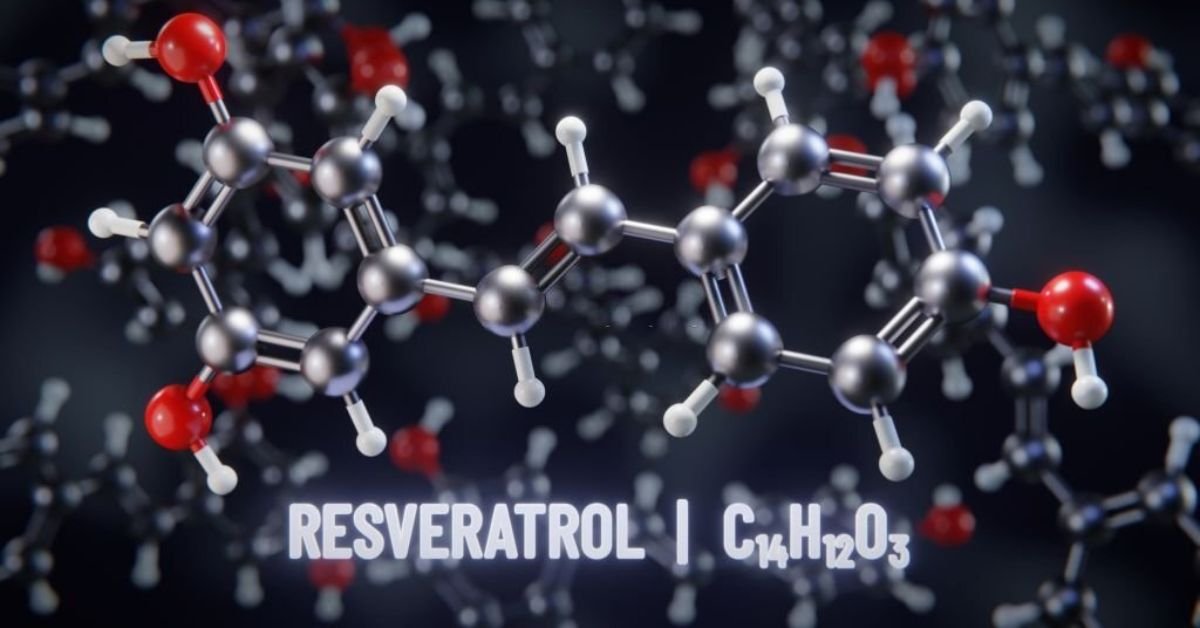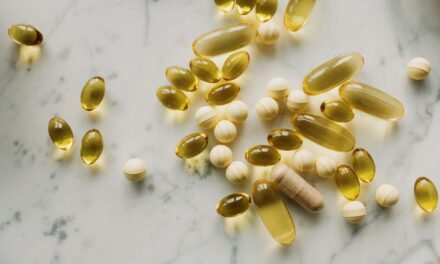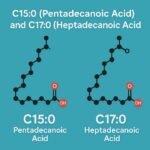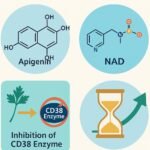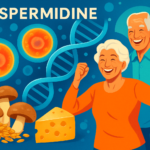Introduction
In recent years, there has been growing interest in the health benefits of Resveratrol. This natural compound, found in certain plants like grapes, berries, and peanuts, has gained attention for its potential positive effects on various aspects of human health. From promoting longevity to supporting heart health and cognitive function,Resveratrol has emerged as a fascinating subject of scientific research. In this article, we will delve into the captivating world of Resveratrol, uncovering its potential benefits and exploring the scientific evidence behind its claims. So, let’s embark on this journey of discovery and unravel the secrets of Resveratrol’s health-promoting properties.
Table of Contents
1. The Origins of Resveratrol
2. Resveratrol: A Potent Antioxidant
3. Resveratrol and Longevity
4. Resveratrol and Heart Health
5. Resveratrol: A Neuroprotective Agent
6. Resveratrol and Anti-Inflammatory Properties
7. Resveratrol and Cancer Prevention
8. Resveratrol and Weight Management
9. Resveratrol and Diabetes Management
10. Resveratrol: Enhancing Exercise Performance
11. Resveratrol and Skin Health
12. Resveratrol: Potential Anti-Aging Effects
13. Resveratrol and Eye Health
14. Resveratrol and Bone Health
15. Resveratrol: A Promising Anti-Microbial Agent
16. Resveratrol and Liver Health
17. Resveratrol and Gut Health
18. Resveratrol: Supporting Kidney Function
19. Resveratrol and Respiratory Health
20. Resveratrol: Balancing Hormones
21. Resveratrol and Exercise Recovery
22. Resveratrol and Hair Health
23. Resveratrol: Potential Antidepressant Effects
24. Resveratrol and Eye Health
25. Resveratrol: Enhancing Oral Health
26. Conclusion
27. Frequently Asked Questions about Resveratrol
Resveratrol
Resveratrol is a natural polyphenol compound that belongs to a class of substances called stilbenes. It is primarily found in certain plants as a protective agent against stressors such as UV radiation, infections, and injuries. Resveratrol has gained attention due to its potential health benefits and has been the subject of extensive scientific research in recent years.
The compound’s remarkable properties have sparked interest in its potential effects on human health, leading to a myriad of studies exploring its benefits. From its antioxidant properties to its impact on longevity, cardiovascular health, cognitive function, and even potential anti-cancer effects, Resveratrol continues to captivate researchers and health enthusiasts alike.
1. The Origins of Resveratrol
Resveratrol is naturally produced by various plants as a defence mechanism against pathogens and environmental stressors. It can be found in several plant sources, with grapes and red wine being among the most well-known and abundant sources. Other sources of Resveratrol include berries like blueberries and cranberries, as well as peanuts.
The compound is synthesised in plants in response to stressors such as fungal infections, ultraviolet radiation, and mechanical damage. Interestingly, Resveratrol levels tend to increase when a plant is under attack or faced with unfavourable conditions. This adaptive response has piqued the interest of scientists who aim to unlock the potential benefits of Resveratrol for human health.
2. Resveratrol: A Potent Antioxidant
One of the key properties of Resveratrol is its potent antioxidant activity. Antioxidants play a crucial role in the body by neutralising harmful molecules called free radicals, which can cause oxidative stress and damage cells. Resveratrol acts as a powerful scavenger of free radicals, helping to protect cells and reduce oxidative damage.
Numerous studies have demonstrated the antioxidant activity of Resveratrol and its potential to combat oxidative stress. This property has led to investigations into its role in preventing chronic diseases associated with oxidative damage, such as cardiovascular disease, neurodegenerative disorders, and certain types of cancer.
3. Resveratrol and Longevity
Longevity, the quest for a longer and healthier life, has intrigued humans for centuries. Researchers have long sought to uncover the secrets behind ageing and explore potential interventions that could extend lifespan and promote healthy ageing. Resveratrol has emerged as a compound of interest in this pursuit. Several studies conducted on model organisms like yeast, worms, fruit flies, and mice have shown promising results regarding Resveratrol’s impact on longevity. These studies suggest that Resveratrol may activate certain genes associated with longevity and enhance cellular and mitochondrial function, thereby promoting a longer lifespan.
While the findings from animal studies are intriguing, more research is needed to determine the effects of Resveratrol on human longevity definitively. Nonetheless, the preliminary evidence is encouraging, and ongoing studies continue to shed light on Resveratrol’s potential role in healthy aging.
4. Resveratrol and Heart Health
Cardiovascular disease remains a leading cause of death worldwide, making heart health a top priority for many individuals. The potential benefits of Resveratrol on cardiovascular health have garnered significant attention within the scientific community and beyond.
Research suggests that Resveratrol exhibits various cardiovascular effects, including the ability to reduce blood pressure, improve cholesterol profile, and prevent the formation of blood clots. Additionally, its antioxidant properties help combat oxidative stress, a key contributor to cardiovascular disease.
Numerous studies, including human clinical trials, have explored the impact of Resveratrol on heart health. While results have been promising, it is important to note that Resveratrol is not a substitute for a healthy lifestyle or medical interventions. It should be seen as a potential adjunct to existing therapies and preventive measures for cardiovascular health.
5. Resveratrol: A Neuroprotective Agent
The brain is a complex organ responsible for vital functions such as cognition, memory, and decision-making. Maintaining optimal brain health is crucial for overall well-being, and emerging evidence suggests that Resveratrol may contribute to neurological health and protect against age-related cognitive decline.
Resveratrol’s antioxidant and anti-inflammatory properties are believed to play a role in its neuroprotective effects. By reducing oxidative stress and inflammation in the brain, Resveratrol may help preserve cognitive function and support healthy brain ageing.
Animal studies have demonstrated positive outcomes regarding Resveratrol’s impact on cognitive function and neurodegenerative diseases such as Alzheimer’s and Parkinson’s. While further research is needed to determine the exact mechanisms and effects in humans, the potential of Resveratrol as a neuroprotective agent is indeed captivating.
6. Resveratrol and Anti-In
Inflammation is a natural response of the immune system to protect the body against harmful stimuli. However, chronic inflammation can contribute to the development of various diseases, including cardiovascular disease, diabetes, and certain types of cancer.
Resveratrol has been found to possess anti-inflammatory properties that can help modulate the body’s inflammatory response. Studies have shown that Resveratrol can inhibit the production of inflammatory markers and reduce the activation of pro-inflammatory signalling pathways.
These anti-inflammatory effects of Resveratrol have prompted researchers to explore its potential applications in managing inflammatory conditions and preventing chronic diseases associated with inflammation.
27. Conclusion
Resveratrol, the remarkable compound found in various plants, continues to intrigue scientists and health enthusiasts alike. Its potential benefits span a wide range of areas, from promoting longevity and heart health to supporting brain function and potentially preventing chronic diseases like cancer.
While much progress has been made in understanding Resveratrol’s effects, it is important to note that further research is still needed to fully unlock its potential. Nonetheless, the existing body of evidence suggests that Resveratrol holds promise as a natural compound with numerous health benefits.
As we delve deeper into the world of Resveratrol, it is important to remember that a balanced lifestyle, including a healthy diet, regular exercise, and medical guidance, remains the foundation for optimal well-being. Resveratrol, with its potential to complement existing health practices, may offer an additional avenue toward improved health and longevity.
Frequently Asked Questions
Learn How it Works!
What is Resveratrol?
Resveratrol is a natural compound found in certain plants, such as grapes, berries, and peanuts. It has gained attention for its potential health benefits and has been the subject of extensive scientific research.
How does Resveratrol work?
Resveratrol works through various mechanisms, including its antioxidant and anti-inflammatory properties. It may also activate certain genes associated with longevity and promote cellular and mitochondrial function.
Is Resveratrol safe to consume?
Resveratrol is generally considered safe when consumed in moderate amounts from dietary sources. However, high-dose supplementation may have potential risks and interactions with certain medications. It is always best to consult with a healthcare professional before starting any new supplement regimen.
Can Resveratrol prevent cancer?
While some studies have shown promising results regarding Resveratrol’s potential anti-cancer effects, more research is needed to fully understand its role in cancer prevention and treatment. It should not be used as a substitute for conventional cancer therapies.
Can Resveratrol help with weight loss?
Resveratrol has been studied for its potential effects on weight management, including its impact on metabolism and fat storage. While some research suggests it may have beneficial effects, it is not a magic solution for weight loss and should be combined with a healthy diet and exercise.
Can Resveratrol reverse the ageing process?
Resveratrol has shown promising results in animal studies regarding its potential to enhance cellular and mitochondrial function and extend lifespan. However, more research is needed to definitively determine its effects on human ageing definitively.

